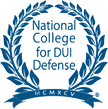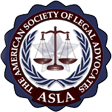Get Help From Emerald City with Your Protective Orders
There are several different types of protective orders that serve to defend one person from another individual for particular reasons. Washington state protection orders are taken seriously. If you stand accused of violating one of these orders, you will need the services of an experienced Seattle protection order violations lawyer.
Have you been accused of violating a protection order? If so, a Seattle protection order violations lawyer at Emerald City Law Group understands the challenging situation you are facing. We will work vigorously on your behalf to minimize the potential consequences of these charges and help maneuver your case toward a positive outcome.
For a free case evaluation, call us today at 206-973-0407, or send us a message through the online form.
Types of Protection Orders in Washington State
It is important to be aware of the different types of protection orders that are available in the state of Washington. These orders include:
Domestic Violence Protection Order
This civil order issued by the court results from the request of an individual who claims to have been the victim of domestic violence.
Sexual Assault Protection Order
When criminal action is pending, or as a condition of your sentence, a judge may issue a civil or criminal court order protecting your alleged victim from your contact and potential future sexual assault.
No Contact Order
If you face domestic violence charges and are arrested and convicted, the court may issue a no-contact order as a condition of your release. The order may be issued in response to a no-contact order violation without regard to the status of your current domestic situation.
Restraining Order
This civil order is often filed in the midst of a family law case. This order differs from a domestic violence protection order because it covers a broad array of issues, including temporary custody, property issues, spousal support, and child support.
Anti-Harassment Order
Any person claiming harassment who does not qualify for a domestic violence protection order may request an anti-harassment civil order. These are often issued to address non-domestic relationship disputes, such as an event that occurs with a neighbor.
Vulnerable Adult Protection Order
The protection of vulnerable adult children is the goal of this civil order. An experienced protective order violation attorney can help define how and why this order has been applied to you.
Stalking Protection Order vs. Stalking No-Contact Order
Under the framework of pending criminal action, a court may issue a civil stalking protection order or a criminal stalking no contact order against you.
What Constitutes a Protective Order Violation?
In Washington, a protective order violation requires the following elements of proof:
- A valid order was issued by the court
- The offender was properly notified of the order
- Contact prohibited by the order was made
Contact that is prohibited includes any indirect or direct contact with your alleged victim or protected person, as well as being in close proximity to said individual. Forms of contact can include texts, phone calls, social media, email, or third-party communication. Protective orders may require you to remain a specified distance away from the other individual’s school, home, or place of employment.
Even if the alleged victim or protected person requested or does not complain about the contact, you are still guilty under the law of violating a protective order if any contact is made.
Penalties for Violation of a Protection Order
Under Washington law, a protection order violation is typically charged as a gross misdemeanor. Possible penalties for this offense include up to 364 days in jail, $5,000 in fines, or both. The court may also require you to wear electronic monitoring paid for at your own expense. Violating a protection order may also be classified as a class C felony if the violation occurs in combination with reckless assault or endangerment, or of you have two or more past convictions for similar offenses. In these cases, possible penalties include up to five years in prison, $10,000 in fines, or both.
You will need the experienced advocacy of a protective order violation attorney to fight these charges effectively.
Defenses for a Protection Order Violation Charge
There are several defenses available against a protective order violation charge. For example, you may assert that you did not make contact with the protected person. You may also claim that you were not made aware of the protective order. Your case is unique and requires the skills of an experienced criminal defense attorney in order to articulate the proper and most effective defense.
Call a Seattle Protection Order Violations Lawyer Today
Standing accused of a protective order violation can be devastating due to the fact that you will be facing potential legal consequences if found guilty. At Emerald City Law Group, we will fight vigorously on your behalf to have your charges reduced, or – if possible – dismissed. To arrange a free consultation with an experienced Seattle criminal defense lawyer about your case, call us today at 206-973-0407, or fill out our contact form.






